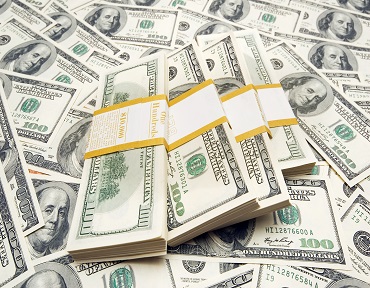Nigeria’s foreign reserve rises by $79.1 million in July 2021
Nigeria’s foreign reserve closed the month of July 2021 at $33.4 billion, appreciating marginally by $79.1 million compared to $33.32 billion recorded at the start of the month.
However, it declined by $1.97 billion, compared to $35.37 billion at the start of the year. This is according to data tracked from the website of the Central Bank of Nigeria (CBN).
The current level of Nigeria’s foreign reserve represents a 0.24% marginal increase compared to $33.32 billion recorded as of 30th June 2021. The forex reserve had witnessed a significant and persistent decline earlier in the year, until recently in July, which had piled pressure on the exchange rate of the naira.

A look at the data shows that the foreign reserve has dipped 1.07 billion since the start of 2015, representing a 3.1% decline compared to $34.47 billion recorded as of 31st December 2014.
It is worth noting that since the reserve started recording consistent positive growth, the reserve has gained $314.7 million in 12 days.
The decline in the reserve position had been attributed to a number of factors including the decline in export earnings, widening trade deficit, the slump in diaspora remittances, huge decline in foreign inflows, intervention at the I&E window and at the BDCs.
Recall that Nairametrics reported a significant jump in Nigeria’s foreign trade balance in the first quarter of 2021, hitting as high as N3.94 trillion deficit, caused by a huge increase in import bills. The massive reliance on the importation of goods and services threw Nigeria into its highest annual trade imbalance in 2020.
Similarly, foreign direct investments into Nigeria slumped to the lowest level in 11 years, with foreign direct investments dropping significantly.
What the CBN is saying
The CBN governor, Godwin Emefiele, during his press briefing, noted the marginal increase in the reserve in the month of July. In terms of boosting the reserve position, Emefiele touched on the possibility of boosting the external reserve by issuing diaspora bonds.
- According to the governor, “Members further noted the contribution of poor infrastructure to rising domestic price levels, re-iterating their call to the Federal Government to prioritize investment in public infrastructures such as improved transportation networks, power supply, and telecommunication facilities,” Mr Emefiele said.
- “Funding for such projects, the Committee noted, could be sourced through Public-Private-Partnerships, as well as the issuance of diaspora bonds. It emphasized the complementary role these bonds would play to boost foreign exchange supply, improving accretion to reserves and easing the exchange rate pressure,” he added.
An increased foreign reserve is expected to ease the pressure currently on the naira. The CBN in a move to manage the current currency problem banned the sales of forex to Bureau De Change operators in Nigeria.
What this means
The increase in the country’s foreign reserve means more funds for the CBN to adequately manage the naira against foreign currencies, as well as help the federal government adequately cater for pent-up financial obligations.








